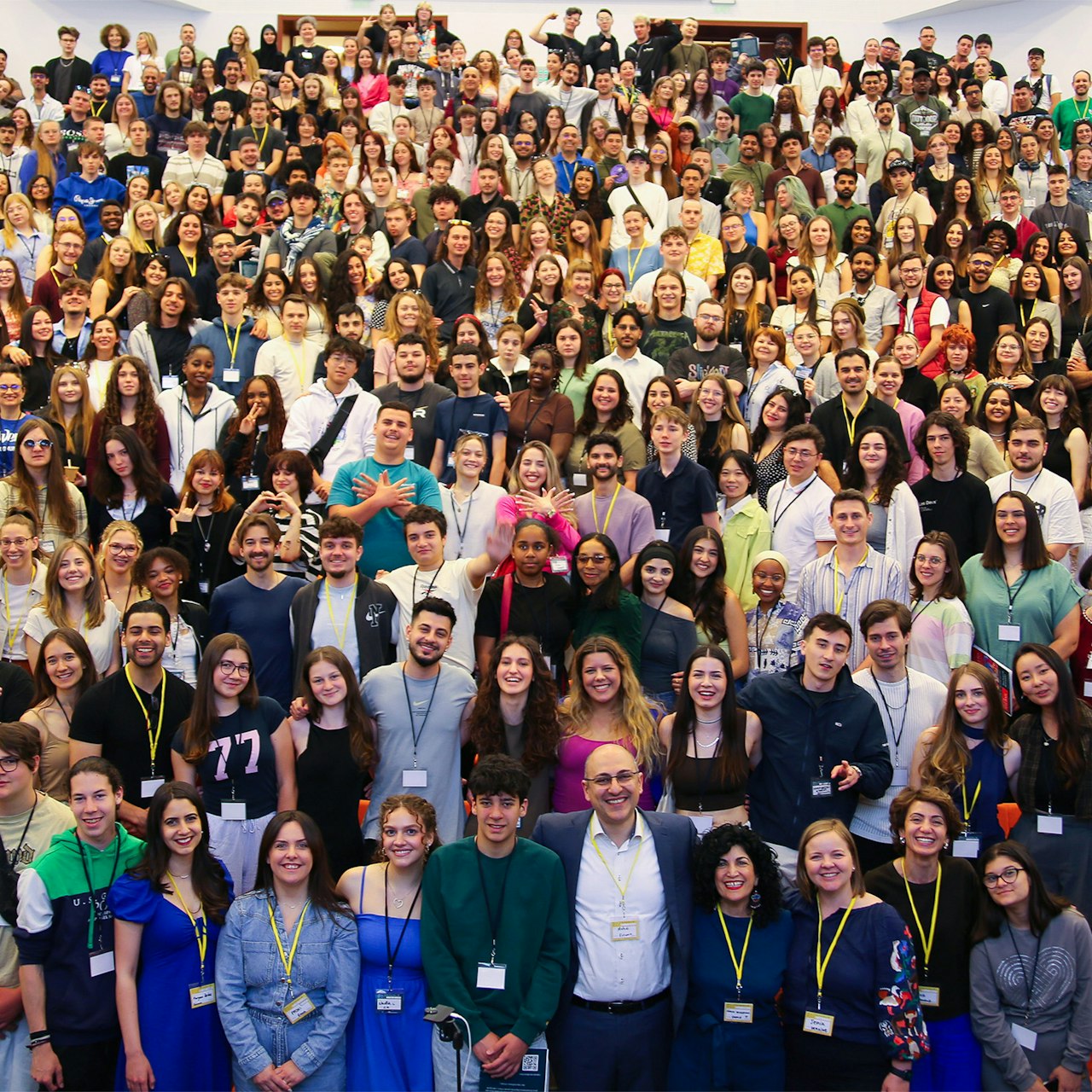
"Practitioners of Peace"
European youth consider their role in society’s renewal
500 youth from 22 countries in Eastern Europe gathered in Bucharest to explore how to intensify their efforts to contribute to the betterment of their societies.

500 youth from 22 countries in Eastern Europe gathered in Bucharest to explore how to intensify their efforts to contribute to the betterment of their societies.
BUCHAREST, Romania — In many regions of the world, young people find themselves caught between two competing visions of their future—one marked by a desire to seek opportunities elsewhere, and another that calls them to contribute to the renewal of their own communities.
Some 500 youth from 22 countries across Eastern Europe recently gathered in Bucharest to address this very tension: What does it mean to become protagonists of positive change in the societies where they live?
Titled “Practitioners of Peace: Youth Transforming Europe,” the conference was conceived as an important moment within a longer process of conversation and action.
In her opening remarks, Yevgeniya Poluektova, a member of the Board of Counsellors in Europe, acknowledged the profound challenges facing the region and the world. Referencing the ongoing conflicts that have touched communities throughout Europe, she observed that despite the best efforts of many leaders and institutions, enduring peace remains elusive.
“Think of why you came here—to build the world anew on a strong foundation,” said Ms. Poluektova.
Rather than conceiving of peace as something to be achieved solely through distant negotiations or policy changes, participants explored how their own neighborhoods might become spaces where unity, justice, and mutual support take root in everyday interactions.
Pelagia, a participant from Romania, reflected on the meaning of being a practitioner of peace: “It means loving one another unconditionally—regardless of color, despite different religions, and despite any of the differences that there are among us. By understanding this, we can be able to serve our community.”
The interplay of knowledge and growth
A profound theme that emerged throughout the gathering was the nature of education and its relationship to social change.
The question posed to participants was not simply how to acquire more knowledge, but rather what kind of education is needed to ensure that the next generation is better equipped to contribute to society’s advancement rather than its decline.
The conversations explored how formal schooling, while valuable for developing the intellect and professional skills, addresses only part of what it means to be educated.
Participants discussed how their grassroots efforts represent something more than extracurricular activities or volunteer work. Through these efforts, they are developing their capacity to address humanity’s most pressing need: learning to live together in unity and work for the common good.
Bora, from Kosovo, shared a perspective rooted in her family’s experience across generations. She described how her grandparents were raised in a time of widespread illiteracy, how her parents had struggled to access education during periods of conflict, but how she now has opportunities that were denied to those who came before her.
Yet her reflection went deeper than gratitude for access to moral and spiritual empowerment programs: “Education makes us noble because it humbles us—we come to realize that whatever we know is never enough, yet we continue to pursue knowledge.”
Bora’s words point to a conception of education as something that shapes not only what we know but who we become—and in so doing, shapes the kind of society we can collectively build. “Education is a means to learn how to be better, how to be more noble, how to be gentle. It teaches us to be practitioners of peace through knowledge, through empathy, through trust.”
The patient work ahead
Throughout the three days, the spirit among the participants went far beyond enthusiasm and inspiration to a recognition that qualities cultivated in community can radiate outward, influencing ever-widening circles of interaction and gradually changing the character of social spaces.
Central to this recognition was the realization that such change begins with individuals learning to bring greater coherence to their own lives—aligning their beliefs, aspirations, and daily actions into a unified whole.
Kashaf, from Poland, explained how the gathering had helped her recognize a need for greater coherence between the different aspects of her life that had previously seemed disconnected.
“One of the main insights that resonated with me was the idea of living a coherent life, where my studies, career, and service are not separate but are part of one unified path,” she explained.
Kashaf’s experience at the gathering helped clarify her path forward. Shortly after the conference, she relocated to another city where she could assist with moral educational programs for younger youth while pursuing her studies in medicine.
Kashaf’s story, as with many other attendees, highlights a broader movement taking shape across the region. Youth are learning that the patient work of building capacity to address the root causes of their society’s challenges and fostering unity at the grassroots through sustained community-building endeavors—while less immediately visible than various forms of actions seeking rapid but often unsustainable change— holds the promise of creating lasting change.
The effort to build a new civilization, said Ms. Poluektova, “will take the efforts of many generations.”